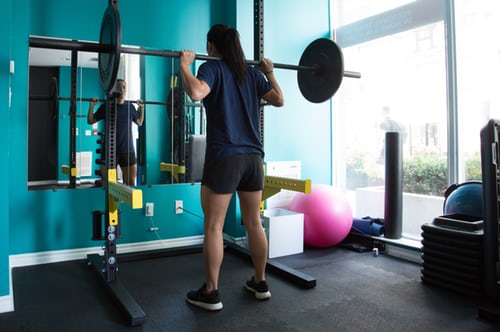
Congratulations on deciding to take your fitness journey to the next level by working with a professional trainer. A personal trainer will help you attain your health and wellness goals. Not only will a professional trainer motivate you and keep you accountable on your daily workouts, but they’ll also play a key role in helping prevent injury and maximize your time at the gym.
But there’s a difference between making a reasonable investment regarding your future success story and throwing your money out there for something that won’t work. The difference lies in knowing how to choose the right personal trainer who will help you achieve your goals.
For this reason, you should do due diligence when choosing a trainer. You’ll need to do a little legwork to determine whether a trainer is right for you or not. That’s why it’s called personal training – as you work together, you create a bond that enables you to remain engaged and motivated throughout the workout sessions.
Here are some things to consider the next time you’re choosing a trainer:
1. Experience
A trainer who has been around for a long time is likely to have tested and perfected their way of providing the best tips and support. These tips are vital in helping you get the most out of every training session. So unless you are not serious about your training, you should avoid hiring a beginner-level trainer who is still experimenting and knows little about injury prevention and management. Choose a trainer who has been training for some time.
2. Credentials
One of the first things to keep in mind when looking for a personal trainer is the person’s knowledge base. Choose a trainer who understands the basics and importance of training and exercises.
Background education in biomechanics, anatomy, exercise physiology and classes, such as principles of strength is an excellent way to build blocks for understanding the principle of exercise.
Go for a trainer who bears fitness certification in their area of expertise. Certified trainers have passed examinations through accredited organizations such as the National Academy of Sports, the American Council on Exercise, or the National Strength and Conditioning Association. All these certifications are proof that the trainers have met certain levels of professionalism and competency from reputable organizations.
3. Insurance
Once you’ve decided to hire a personal trainer, you’d surely want to know that you’re covered if anything bad happens to you while training. What will happen to you if your trainer pushes you too far? Does your trainer have personal training insurance to help you cover medical costs that occur during a training session?
This coverage will cover you of any damage arising from your trainer’s negligence during the training. It is advisable to choose a trainer who is insured to avoid uncertainties if anything happens to you in the course of the training.
4. Availability
Consistency during training is vital. So, be sure to ask your trainer about their schedule. Ask them how many clients they have so you can know whether they are fully booked or not. Do they book clients at the same time every week or do they run a flexible schedule? How much time in advance do you need to book your appointment and what is their cancellation policy?
5. Specialties and Training Philosophies
If you want to achieve a specific goal, be sure to choose a trainer whose area of expertise matches your desired outcomes. For instance, if you’re aiming to run your first 10 km race, you’re likely to get better results from a trainer specializing in running as opposed to the powerlifting coach.
While most trainers can offer programs for different skills, sometimes the quality is different from if you got the training from a specialist. Choose a trainer who has narrowed their style, focus and training philosophies to match your goals.
Knowing the specialties and philosophies of a trainer will help you in determining the type of workouts to expect from them. A trainer who specializes in weight loss is likely to approach a goal differently from the one who specializes in running.
6. Location
Do you want to drive 30 minutes across town, or do you prefer something within walking distance? In short, where do you prefer to train?
Some individuals get inspired when they see other people in a gym; others like a one-on-one approach, while others prefer to train at their homes. Fortunately, most trainers are flexible and can train you both at the gym or at home, provided you have the equipment necessary.